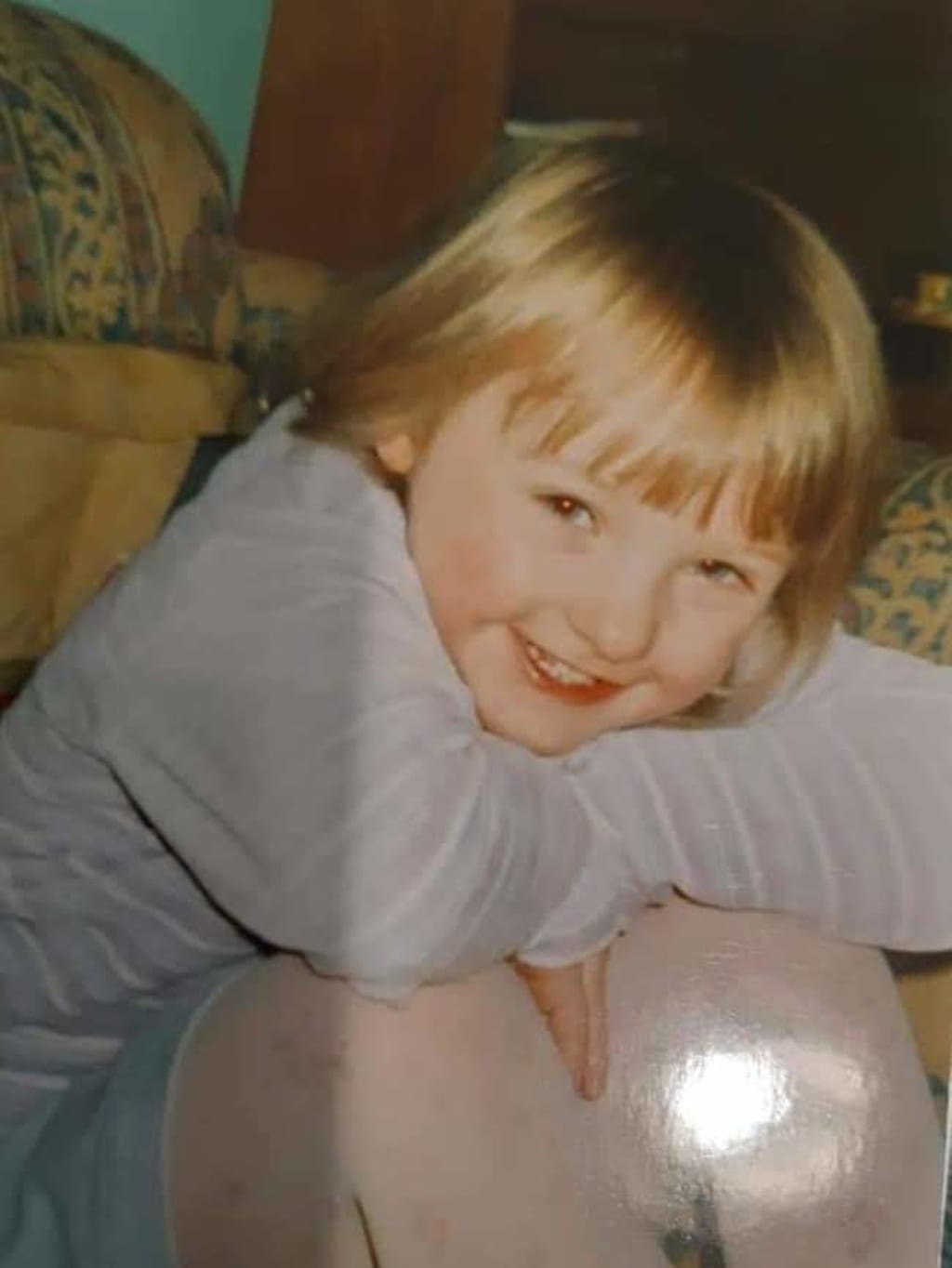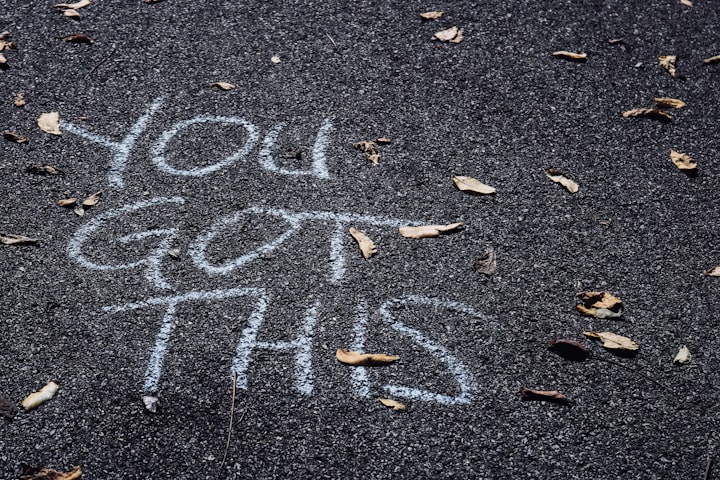
"Facade: a deceptive outward appearance."
Growing up, I was never really happy. I could never quite put my finger on why, though. I had a roof over my head, clothes that fit, I never went hungry, I got a good education... Any time I displayed my emotions, I was always told that these things meant I had nothing to be sad about. It took a long time and many years before I realised there's a lot more to raising a child than what is really the bare minimum. There is more to raising a child than just physically keeping them alive, and I wish someone had told me that earlier on in my life. Deep down I could never shake that niggling feeling that something wasn't quite right, but I was constantly reminded of how ungrateful I was being and how much worse my life could've been so I usually just assumed I was being dramatic and self-centred. Mum would always talk about how much she sacrificed for me (mostly her own happiness), how ungrateful and selfish I was, how her childhood was so awful that I had no right to say I didn't like mine. She always had a negative comment to make - I couldn't talk about anything I was remotely interested in without her making a snide comment about it. She could never accept that I was just a bit "different" (undiagnosed autism, it turns out, but she hated the thought of having a disabled child so that wasn't figured out until much later). She surrounded herself with a small group of people that enabled her, including my dad, but he isn't entirely innocent either.
When the first signs of my mental health came in the form of severe anxiety, particularly around other people, at around 4 years old, she was always dismissive. When I started reception in primary school I wouldn't speak to anyone, not even to answer my name in the register. One of my parents had to sit in class every morning to try and get me to answer my name, but this just made them more frustrated with me. "It's just saying 'here' to your teacher, why can't you even do that? You can talk, can't you?" Primary school was full of bullying, that my mum only ever made worse by screaming at the teachers in a very non-helpful way, and my anxiety began to show even more. I think the depression started at some time here, but it's all blurred into one at this point. Secondary school was somehow even worse and at 13 I made my first attempt on my own life at school one day. Another student in my year caught on and he told a teacher (and all the other kids), who called my mum to pick me up. I was sent home but expected back the very next day, and my mum greeted me in reception by calling me a selfish brat because now she had to leave work early, which meant less money, and we were already at risk of losing the house. I wasn't taken to hospital and it was still two years before I was ever sent for a mental health assessment. Any time my growing mental illness was visible to others, I was hit with the same comments of being selfish, ungrateful, attention seeking, dramatic, exaggerating, narcissistic... My mum always made sure I knew that suicide was wrong, because she was a good mum and good mums don't have children who commit suicide.
Her own mental health was poor and I think always has been, but she lived in denial. She would go to the doctors a handful of times, get some medication, then stop taking it after a week because it wasn't working and then decide she didn't have a problem with her mental health. Yet somehow I still felt the blame for this, especially when it came to money. Financial stress was pretty much the sole conversation topic in my house growing up. My parents had amassed a lot of credit card debt over the years and were still taking out new loans and cards. Our "family time" was often shopping where we could come home with new clothes, toys, and have dinner out every weekend. Mum usually brought home the most, with my dad only usually being allowed something cheap. Often what we were bought were things mum wanted to buy for us and she would chastise us in the shops before buying it.
"You probably won't even play with this! You are so ungrateful, you never enjoy anything we spend our money on. We are in so much debt and might even lose the house, and you can't even play with the toys we buy you!"
She would still buy it, continuing to scold us all the way round the rest of the shopping centre and all the way home. I spent my childhood terrified that we were going to be homeless, only to find out when I was older that the financial issues were my mum's own debt, not me. I believed growing up that I costed too much money, that it was my existence that meant my family were close to homelessness. Mum would tell me that they wouldn't be in this mess if I didn't exist. She would tell me that she wouldn't be poor if she didn't have to spend her money on a brat like me.
I think it is sad that I grew up learning that money = love. Because I learned the hard way that it doesn't. My family environment made me vulnerable and I thought for a long time that it was normal to hate your partner and your family. I watched my mum and dad at each other's throats for 19 years before I moved away and I had so little experience of any other type of relationship, that just became my normal. I could acknowledge that I was probably being abused by partners, but I thought it was normal and that I deserved it. I was used to being the scapegoat.
Daydreams
As a child, I would frequently daydream about being adopted by a kind, loving, big and close family. Or running away and being found by a kind, loving, big and close family. You get the idea. I never told many people about these daydreams because I felt so guilty - my mum was trying her best, right? And it wasn't her fault as she would always remind me. So how evil could I possibly be to daydream about living with another family? How could I be so awful to imagine living with and loving another family when I barely loved my real family?
Recovering from this kind of emotional abuse from family is not a linear process, and that's the biggest piece of advice I can give to anyone in a similar position. When people talk about the stages of grief, for me it was more like they all happen at once and keep coming and going, rather than a step by step process. I have a lot of work to do within myself to build up the person I haven't ever known or felt I could be. My sense of identity is completely broken and is fragmented, if it's even there at all. I have internalised a lot of the anger and resentment I felt from my mum, and find it hard to occupy space without feeling like a burden. I find it hard to accept people being nice to me, as I find it hard not to believe they are messing with me as people usually do this to punish me. I fundamentally don't feel like I deserve to have nice people in my life and I feel like a horrible person, even though I know deep down I was the child and I was not responsible for my family's trauma. It is very lonely but now that I have begun the recovery process I hope this can change.
Future
In the past couple of weeks I have started therapy with a local trauma service. I have been trying and failing to get some more intense support from NHS mental health services but they are poor here. I am happy and content with being no-contact with 99% of my family and the initial anxiety and sadness I felt has mostly gone. I realised that I was grieving for the family I have never and will never have - that the loving, nurturing family free from abuse that every child deserves wouldn't exist even if I let my parents back into my life. I hope they both seek some support in the future for their own peace and I would highly recommend finding a trauma service if you have been through anything similar
About the Creator
sparrow
documenting my mental health experience and my recovery journey






Comments
There are no comments for this story
Be the first to respond and start the conversation.